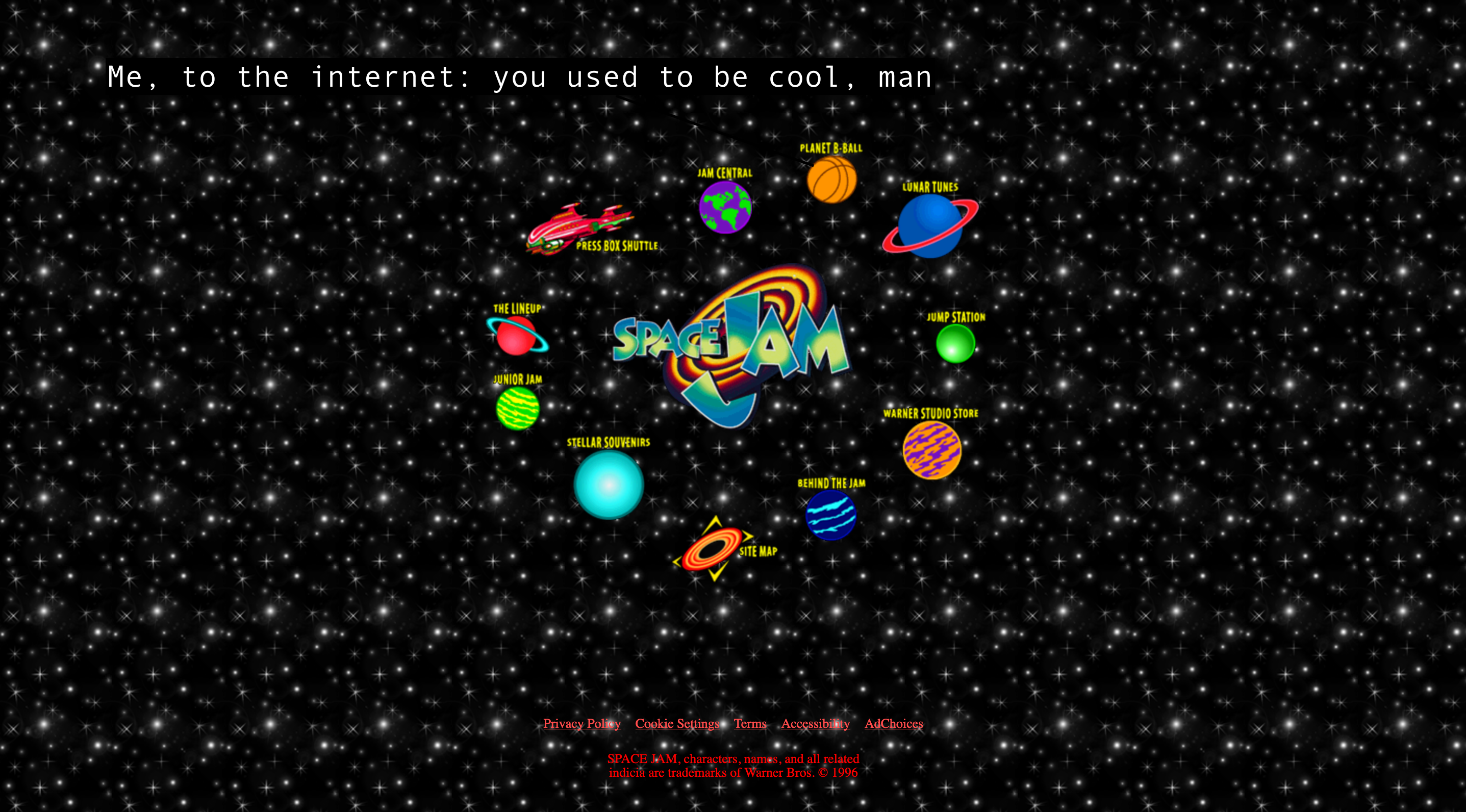At the moment the majority of publishers and content creators need to make their money from collecting user data
It turns out it doesn’t have to be that way. Grant for the Web is a fat $100M fund to boost and promote alternative monetisation standards. The models we have right now rely very heavily on behavioural advertising, which eats away at two things:
- The privacy of everyone who uses the internet
- A key part of what the internet once was: a place to interact, and make things.
The basic premise of Grant for the Web is simply to give users of the internet more control over their data (this is desperately needed) and to allow makers simply to make things, and not have to rely on pumping their blogs full of tracking technologies.
 Remember when the internet was just random cool stuff to look at without the threat of the Facebook pixel measuring how quickly your hair grows?
Remember when the internet was just random cool stuff to look at without the threat of the Facebook pixel measuring how quickly your hair grows?
The way they want to go about that is to establish platforms which monetise differently — e.g. making money from the actual content, and not adverts. Which is something that Coil do themselves already.
Who would this grant even be for? Here’s something from their FAQ:
“Grant for the Web will fund individuals, projects, and global communities that contribute to a privacy-centric, open, and accessible web monetization ecosystem. It will prioritize innovative ideas that incorporate or build upon the Web Monetization standard and protocols.”
This a much more sustainable business model — right now publishers like Vice and Buzzfeed use advertising as a way to pay their employees. But as companies begin to spend less and less on ads, people start to loose jobs — even though users still enjoy consuming their content.
So this fund is for people who want to make money by producing the best content — not by publishing the most ads. This is an excellent move: makers would actually be able to concentrate on making, and users will once again have a glorious online world at their feet, with no energy spent on pushing away cookie banners and worrying about where their data is even going.
